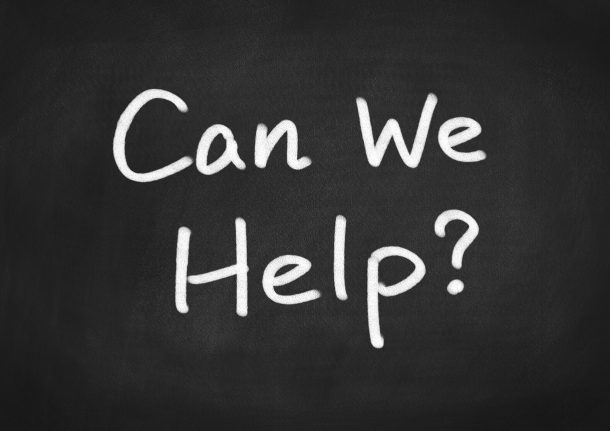
Starting therapy can be confusing, particularly if you have never experienced counselling before. You will likely have a lot of questions and some anxiety, too. That’s normal and our therapists will help you to feel comfortable from your first appointment.
The questions and answers below may help to put your mind at ease. You may also like to read our pages on individual counselling and short-term therapy. If you have practical questions, the pages on our fees, how we work and privacy and confidentiality will also help.
Please note: we do not offer couples counselling, our therapists only see individuals. If you are looking for couples counselling, please visit our partner practice One Therapy London where our fully-qualified therapists may be able to help!
What kinds of people go for counselling or psychotherapy?
All kinds of people have therapy and find it really supportive. At Face2Face London we only see adults (18 or over). Our clients come from many different backgrounds and come to us for many different reasons.
Time spent with a therapist can be very helpful in addressing anxiety, stress, depression, sexual problems, relationship issues, loss and bereavement, problems with addictive behaviours and many other issues. It can be used to discuss any life event or circumstance. There is no limit to what can be discussed in counselling.
What should I talk about when I meet a therapist?
Discussions in counselling and psychotherapy can be about anything. Our clients may discuss whatever they want to discuss in confidence with their non-judgemental therapist. Some people choose to talk about events from the past while others prefer to focus on whats going on in their lives at the moment. Some clients find it hard to open up at first. Please don’t worry about that – we are used to it and will help you.
I might want to speak about sensitive issues. Is counselling and psychotherapy confidential?
Counselling only works if clients feel safe enough to speak about whatever is on their mind. So discussions in therapy are confidential. There are a few legal exceptions to this, which your therapist will discuss with you at the outset, but they are rare.
I want to be honest about my life in therapy. Is counselling and psychotherapy non-judgemental?
Absolutely. Therapists are trained not to judge behaviour or individual life experiences, past or present. We respect each client for their personal choices. We wouldn’t be very useful to you if we judged personal experiences or choices. That’s not what we are here for.
Why are there different types of therapy?
As psychotherapy has developed, different therapists have focused on different aspects of it and new approaches have evolved. Although there are differences between the approaches, there is also a lot of overlap. Research has shown that the most important thing in determining how effective therapy is is the relationship between you and your therapist.
If you feel comfortable with your therapist and are able to explore your thoughts and feelings with them openly, the therapy is likely to go well, regardless of which type of psychotherapy they practice. So if you are looking for a particular type of therapy, let us know, but otherwise our priority will be matching you with a therapist with whom you feel comfortable.
Is counselling painful?
Therapy can be uncomfortable, depending on the issues and emotions that need addressing. We support our clients through many painful emotions. Like going to a gym, in therapy no pain can equal no gain.
I’m concerned about costs. What are your fees?
Your initial consultation will be with a qualified therapist and will cost £60 for individuals or £90 for couples.
Your sessions after that will be with a carefully selected trainee therapist. This enables us to offer counselling at the reduced fee of £45 for individuals and £70 for couples. For more information, please visit Our Fees.
How quickly can I be seen by a counsellor or psychotherapist?
We can usually see new clients within two weeks of initial contact. We attempt to see clients quickly and on days and times that are convenient for them. Appointments are available from morning until late evening, and on weekends.
Appointments last 50 minutes.
Can I stop at any time?
You may end counselling whenever you wish. When you feel ready to conclude your therapy, please let your counsellor or psychotherapist know.
Can I arrange therapy for a family member or a friend?
Unfortunately, no. A person cannot be ‘sent’ for counselling. Your friend or family member will need to contact us directly.
What if I need to cancel my appointment?
If you need to cancel your initial consultation, please let us know as soon as possible. At your first session with your therapist, they will explain our cancellation policy. As your slot is held for you each week, missed sessions are always chargeable. However, if you can’t attend at your usual time, your therapist will try to find another time for you to meet, either face-to-face or online.
My schedule changes from week to week. Can I have flexible appointments?
Consistency is important in therapy, for therapeutic reasons as well as practical ones. So our clients are given a time slot and that time is held for them each week. That said, we recognise that coming at the same time each week is not possible for some people, such as shift workers. In these cases, we aim to offer online appointments at other times in the weeks that they are unable to make their scheduled appointment.
Will the therapy I receive be lower quality because it is provided by a trainee?
Trainees may have less experience, but this doesn’t mean a lower quality of counselling. We carefully select only those trainees who we consider to be knowledgeable, mature, non-judgemental and empathic. In other words, they take their work seriously!
The most important thing is the relationship between you and your therapist. We hope all therapy provided by our trainee therapists is effective and professional.
What if I'm not happy with my counsellor?
It’s important that you feel comfortable with your therapist. So use the first few sessions to get a feel for whether the fit is good for you. If it isn’t, just let us know and we will look at transferring you to a different therapist.
How long will I need to be in therapy for?
That’s impossible to say, sorry! It all depends on how much you want to address in therapy and how deep you want to go. We hold the appointment for you for as long as you want to come and you decide when you want to end.
What happens when my trainee therapist qualifies?
You will be able to continue therapy for as long as you want after your start date, until your therapist qualifies and leaves Face2Face London.
What if I want to meet a fully-qualified, experienced therapist instead of a trainee therapist?
While our trainee therapists are carefully chosen and supervised, it your woudl prefer to meet with an experienced qualified therapy please visit our partner practice One Therapy London offering counselling and psychotherapy in central London since 2006.
Can I have my sessions online?
Yes. Many of our clients choose to have some or all of their counselling sessions online. If you would like your initial consultation to be online, just let us know when you book it.
Therapy is a private and very personal experience, and your sessions will be confidential.
Get the support you need today
Appointments are available Monday to Friday from
7.30 am to 8.30 pm and on Saturdays and Sundays from 7.30 am to 7.30 pm.
Appointments last 50 minutes.
Our therapists
Our therapists are student members of the British Association for Counselling and Psychotherapy (BACP) or the College of Sexual & Relationship Therapists (COSRT).

Please use our enquiry form below and we will respond shortly
There are a number of ways to reach us
Face2Face London
63-64 Margaret Street
London
W1W 8SW
Telephone : 0333 207 6880
Email : hello@face2face.london
Online
To book your first appointment with us, complete
our online enquiry form and we will contact you shortly.
If you prefer to speak with us, you can call us between 9:00am – 12:30pm Monday to Friday.
Appointments available
Mondays to Fridays 7.30 am — 8.30 pm
Saturdays and Sundays 7.30 am — 7.50 pm

